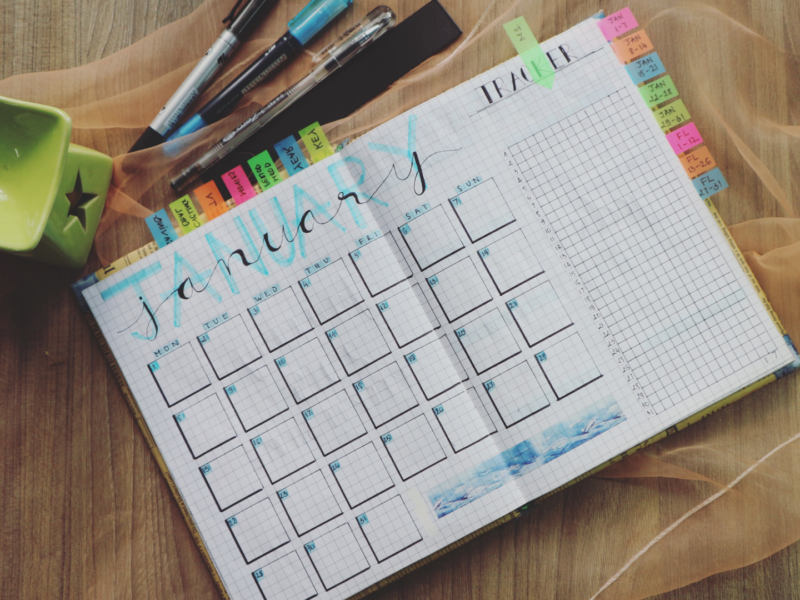Cerebrate Blog.
Explore strategies for skill development

Practicing Planning Skills: A Key to Student Success in High School
Posted In Application On February 6, 2025
Practicing planning skills is essential for high school students to develop executive function skills, improve their academic performance, and achieve overall success. One of the most critical executive function strategies is the ability to set goals, manage time, and follow through with tasks effectively. By incorporating executive function instruction into the classroom, teachers can empower students to take ownership of their learning, build confidence, and strengthen self-advocacy skills. Below are five engaging activities to help students improve their planning abilities while enhancing their executive function learning.
-
Observing Planning in Action
Over an agreed-upon period, have students observe their own learning experiences and identify at least three instances where practicing planning skills helped them succeed. For example, they may recognize how planning ahead for a test, structuring their study sessions, or organizing their materials improved their performance. Students should document each instance, reflect on how it benefited their learning, and consider how to apply similar strategies in the future.
This activity enhances students’ self-monitoring, critical thinking, and executive function system awareness.
-
Evaluating After-School Time Management
Ask students to track how they spend their time after school over a specific period. They should document their daily activities, including homework, extracurriculars, and personal time. Then, have them evaluate whether they allocated enough time to complete their tasks effectively. If students notice that they are consistently running out of time, encourage them to adjust their after-school planning.
This process teaches valuable executive functioning tools, helping students optimize their schedules and build stronger time management habits. Practicing planning skills in this way allows students to develop a better understanding of how to structure their time efficiently.
-
Working Towards a SMART Goal
SMART goals (Specific, Measurable, Achievable, Relevant, and Time-bound) provide a structured approach to goal setting. Have students set a SMART goal and track their progress at regular intervals. Encourage them to celebrate milestones along the way. Monitoring their own success not only boosts student confidence building but also fosters accountability and perseverance—key components of executive function intervention.
This activity also supports student engagement strategies by giving them a sense of ownership over their achievements. Practicing planning skills through goal setting helps students develop essential lifelong habits.
-
Analyzing Daily Habits
Have students document at least 12 habits they engage in during a typical day. Then, instruct them to categorize each habit as helpful, neutral, or a barrier to their goals. By recognizing unproductive habits, students can take proactive steps to replace them with more effective behaviors.
This activity promotes self-reflection and problem-solving, crucial skills in solving executive function challenges. Encouraging students to shift their daily habits enhances their overall ability to manage responsibilities effectively. Practicing planning skills in this manner enables students to make thoughtful adjustments to their routines.
-
Practice Planning Skills Through Time Estimation
Many students struggle with accurately estimating how long tasks will take, which can lead to procrastination or stress. Have students estimate the time required to complete 8-10 daily activities and record their predictions. Over the next several days, they should time themselves completing these tasks and compare actual results to their estimates.
This reflection helps students determine whether they tend to overestimate or underestimate their time needs and allows them to adjust their planning accordingly. Practicing planning skills in this way enhances students’ ability to gauge time effectively and improve their organizational habits.
Supporting Students in Developing Executive Function Skills
Teaching executive function skills, including practicing planning skills, is crucial for helping students manage their responsibilities, improve their academic performance, and enhance their social skills. These activities not only support executive function instruction but also promote long-term student success by fostering independence and resilience. By integrating executive function lessons into daily learning, educators can provide students with the strategies they need to excel both in and out of the classroom.
For additional ways to develop planning skills in younger students, explore our blog posts for grades 1-4 and grades 5-8. To stay updated on new executive function tools and strategies, sign up for our newsletter. Want to explore a comprehensive executive function curriculum? Visit Cerebrate’s executive function lessons to learn more!

